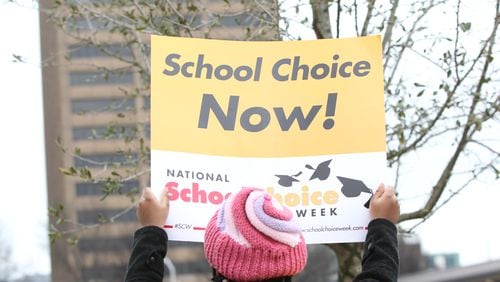Public policy expert David Osborne believes charter schools are our best hope for meaningful change in education. Yet, he understands many parents are leery of charter schools or confused by them.
His solution: Don’t make every public school a charter, but treat every public school like one.
Charter schools are taxpayer-funded schools that are freed from many state and local rules and instead follow a contract designed by the school’s founders and leaders. Their freedom and decentralization carry conditions; charters must show academic improvement in a specified time frame or face closing.
Even while the number of charter schools in America grows, it appears skepticism does as well. In the 11th annual edition of a well-regarded poll by Education Next that examines current attitudes toward major issues in K–12 education, 39 percent of respondents this year said they support “the formation of charter schools,” down steeply from 51 percent in 2016. (One possible cause: The NAACP called for temporary ban on new charter schools, citing concern about accessibility and accountability and diversion of funds from traditional schools.)
“Because charters have become so controversial, we can call these new schools something else,” said Osborne. “Call them innovation, renaissance or partnership schools. But use the same principles as charters.”
Osborne outlines those principles in detail in his new book, "Reinventing America's Schools." In Atlanta earlier this week, Osborne said all public schools would benefit by the freedom accorded to charters to set their own course, hire and fire staff and adopt instructional approaches that click for their students. Charters have the agility to pivot from those approaches if they see their kids need a different model; they're not tethered to central office policies that force all schools to move in lockstep.
Focusing on New Orleans, Washington and Denver, Osborne said those cities have embraced charters and experienced more rapid improvement than other cities as a result. His book builds a case for charters as the best route to transform urban education. (He sees charters as less applicable to rural communities where are too few students to support a range of school choices and where smart young teachers are less likely to relocate.)
Washington witnessed both a thriving charter school movement and profound reforms of its traditional public schools. Osborne notes the district has done everything right with it own schools. "They pay their teachers better than anybody. They have a good evaluation system that weeds out weak teachers and reward strong ones. They have a world-class curriculum and a variety of other innovations," said Osborne, who is director of the project on Reinventing America's Schools at the Progressive Policy Institute.
Yet, while those sweeping changes have improved performance among Washington’s middle-class students, Osborne said poor students attending traditional schools still lag. It’s been the charter schools in Washington that have made the most progress with low-income kids. “If you stop and think about it, what good is a world-class curriculum when a kid is three years behind grade level. You have to be able break the mold, and figure out how to get them up grade level,” said Osborne.
The autonomy awarded to charters has to be balanced by true accountability; bad charters must be closed although he prefers that such schools be taken over by proven charter operators rather than return students back to traditional schools that were failing them in the first place, said Osborne.
He argues the accountability piece cannot be left solely in the hands of parents, opposing the push to allow the parent marketplace to serve as the accountability lever rather than academic performance. While he once would have argued that it could be left to parents, Osborne said he realized some parents lack the education to assess whether a school is effective or give the school a pass on academic excellence if their kids are safe and happy.
The main narrative of school reform casts teachers as the linchpin to school success. Osborne said we’ve ignored the influence of school design, assuming there is an immutability to both how schools operate and how they provide instruction. What charter schools have done, he said, is pioneer new design models.
While not all of them have panned out, Osborne said, “We have a lot different models. We should pay attention to the ones that work.”
About the Author







